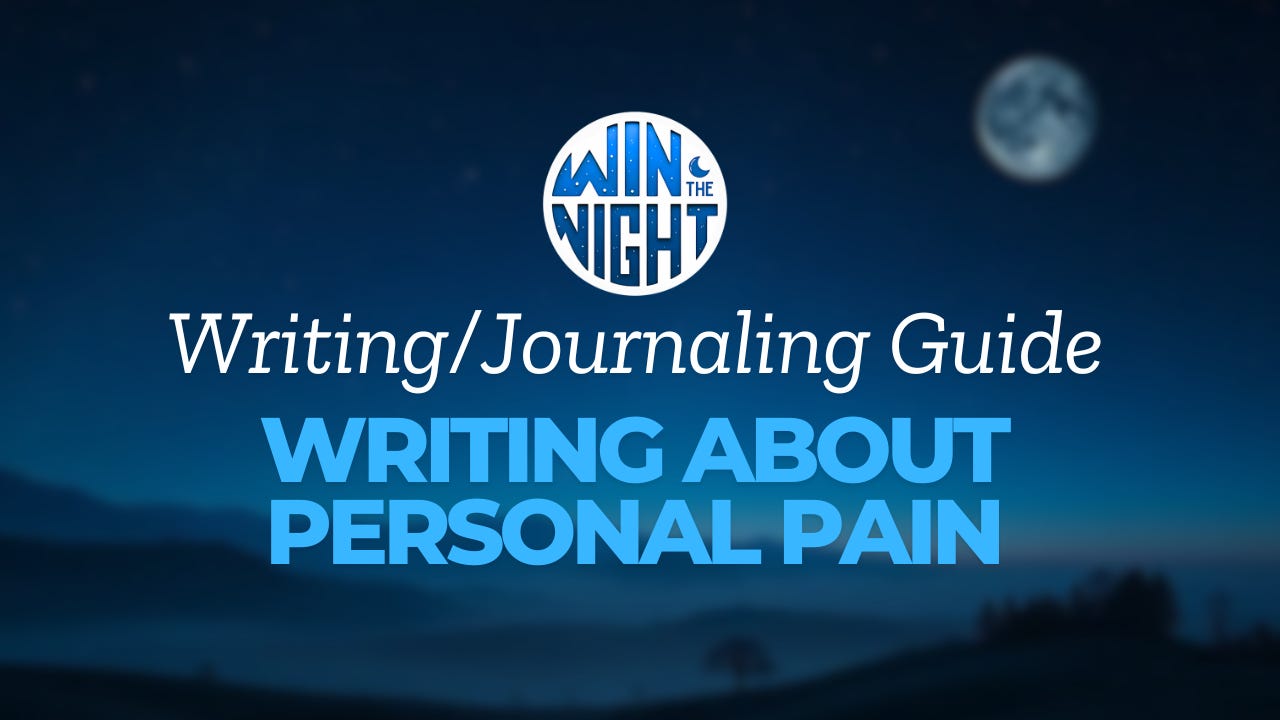How to Write About Pain without Falling Apart.
We romanticize the idea of “bleeding on the page,” but the bleeding just makes a mess. If your writing isn’t helping you move forward, even slowly, it might be time to reassess the way you attack it.
Let’s start with the obvious: writing is supposed to help. That’s what we’re told; journaling is cathartic, getting it all out is the path to peace, if you just keep scribbling through your sadness, eventually it’ll turn into healing.
But sometimes it doesn’t. Sometimes writing makes things worse.
“You just weren’t taught how to write without re-breaking the bone.”
Sometimes, the more you try to “express yourself,” the deeper the spiral.
You end up raw, exhausted, and wondering if this whole emotional growth thing is actually just a scam.
I’ve been there.
I’ve had nights where I’ve written three pages about something that happened when I was 9, only to realize I’ve been stuck in the same narrative loop for ten years. Just with better grammar now.
I've written about the same argument, the same parent wound, the same “I thought I was over this” nonsense more times than I can count. And sometimes all I had to show for it was a headache and a weird feeling in my stomach.
This article is here to break that loop.
Not to stop you from writing, but to help you write smarter. More safely. More intentionally. Because writing can heal, but only if you know when to hold the pen and when to put it down.
Writing can actually hurt you if you don’t know what you’re doing.
Let’s get clinical for a second.
When you write about painful stuff without any grounding, you’re basically giving your nervous system a megaphone and zero boundaries.
You’re asking your brain to relive trauma in full HD without a safety net.
That’s not healing. That’s emotional flooding.
Writing can create clarity, but only if you’re in a place to receive that clarity. If you’re overwhelmed, stressed, or in a dissociative fog? Writing just becomes a maze. You walk in with a flashlight and walk out with a migraine.
What’s worse is when you think you should feel better afterward, but you don’t. You end up blaming yourself. “Why didn’t this help? What’s wrong with me?”
Nothing’s wrong with you. You just weren’t taught how to write without re-breaking the bone. It’s the equivalent of trying to do physical therapy on a broken leg without a brace, no instruction, and no one to spot you.
Then blaming yourself when it hurts worse than before.
You might be journaling in a way that’s making things worse.
Here’s the checklist nobody gives you:
You feel worse after writing
You’re writing the same story on loop
You keep chasing a catharsis that never comes
You use journaling as a substitute for confrontation, clarity, or therapy (hi, it’s me)
You treat the journal like a void that will swallow your pain and solve your problems, only to find it keeps echoing them back
You finish your entries with less energy, more anxiety, and a vague sense of failure
We romanticize the idea of “bleeding on the page,” but sometimes all that bleeding just makes a mess.
If your writing isn’t helping you move forward, even slowly, it might be time to reassess the way you’re doing it.
There is a way to write that won’t spiral you out.
Here’s the system I use. Not perfect. But it works.
Keep reading with a 7-day free trial
Subscribe to Win The Night to keep reading this post and get 7 days of free access to the full post archives.






